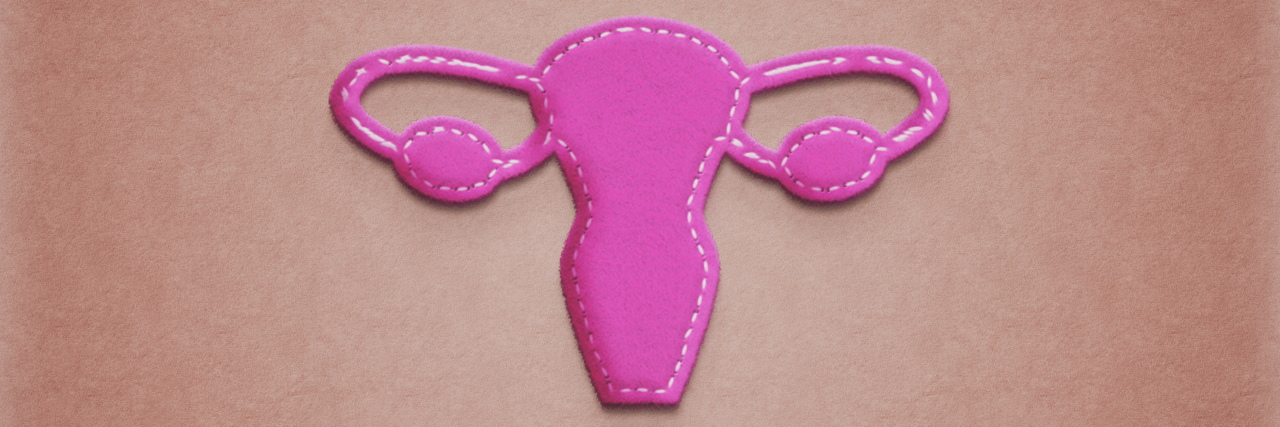Polycystic ovarian syndrome (PCOS) is lonely. But it doesn’t have to be. Recently, Keke Palmer has been sharing more about her experiences with the disorder, on Instagram and in interviews. 21Nintey published a story about Keke sharing. The more we speak up about having the disorder, the less alone we will all feel.
About 1 in 10 women have PCOS, a disorder of hormonal imbalances, and all that can come with that. Symptoms include irregular periods; many developing follicles in the ovaries; excessive body hair, such as on the face or chest (hirsutism); weight gain, often around the belly; insulin resistance; acne; skin tags; thinning head hair; and infertility. It’s a lot, to put it lightly.
My experience with PCOS began with irregular periods. After about a decade of perfectly timed periods, the length between periods got longer than about a month, and the periods themselves started to last for several weeks. My tracking app, Clue, is what alerted me that this was off, and kept reminding me to see a doctor, until I was convinced.
Now, here’s where my experience with PCOS is still all too common. My OB/GYN ran diagnostic tests, including an ultrasound of my ovaries and blood hormonal levels. My hormones were way off, and the ultrasound looked like a constellation, rather than just showing a few developing follicles on each ovary. I was told my diagnosis was PCOS. Then, I was given a prescription for birth control, little to no education about the disorder, and sent on my way. That was it. That meant that as my hormones continued to become out of whack and symptoms continued to develop, it took months for me to even connect that they were PCOS-related. I didn’t realize I should see a doctor again until the symptoms were quite bad, and maybe a different doctor, who put more attention into caring for someone with PCOS.
The most intense symptom of my PCOS isn’t the irregular periods, though that is what first alerted me to having the disorder. It’s not the rapid hair growth on my chin, no matter how often I wax. My most impactful symptom is intense, rapid hunger. I would eat a meal, and then within an hour, I was shaking and needed more food, especially carbs. Sometimes I would start crying, I was so hungry and my hormones were so off. I now know this is related to insulin resistance. My body can still produce insulin, but it has a difficult time using it to process carbs. This means glucose is floating through my blood, but it can’t get into my cells. Hence, intense hunger for carbs, even shortly after eating.
This went on for months, partially because it was so gradual. I didn’t realize how much had changed with my hunger cues, but I also didn’t realize this could be connected to my new diagnosis of PCOS. Eventually, as symptoms piled up and I felt worse and worse, I switched OB/GYNs. I’m not a doctor, but I still know my body best, and I wasn’t receiving enough care. As Keke said in her Instagram post, “No one can help us like we can help ourselves.”
The new doctor wasn’t perfect in how he treated PCOS, but he was more helpful. He provided more education about PCOS. He explained that birth control can create typical looking periods, but it is just masking all of the hormone imbalances still underneath. He offered to start me on a medication, metformin, that helps my body use insulin and process carbs. Within a day of taking the med, I could feel a difference. Meals actually kept me satisfied for a few hours again. I could make it to lunch and then to dinner, without needing constant snacks. Still, he has emphasized several times that he wants me to lose weight. That is not my goal, and it never will be. The weight gain was not my fault, it is not in my control, and it is not the end of the world. There is so much more to health than one number on a scale. My main goal was and is to feel better, especially with being hungry and emotional. Plus, health includes the mental health of loving my body too.
Through all of this though, I did feel incredibly alone. I know a few people in my life who have mentioned also having PCOS, but it isn’t talked about enough. We don’t talk about all the intense and varied symptoms of having PCOS, how much it can affect your life. Keke Palmer speaking out helps. It brings awareness and a voice to the disorder. Maybe someone will hear her words and ask a doctor about their symptoms. Maybe someone will be more assertive with a doctor that they still do not feel well. Talking encourages others to speak out. Hopefully, my sharing can do the same.
Getty image by Carol Yepes.

